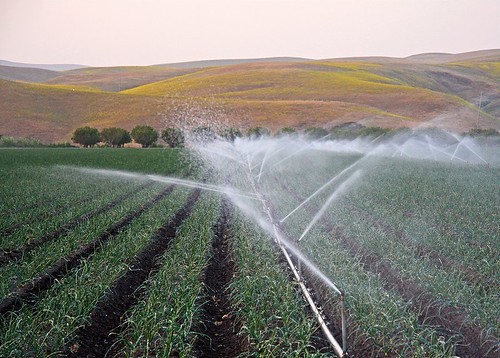The planet is wheezing, coughing, and sputtering, because of vicious attacks by worldwide droughts aided and abetted by global warming at only 1.2C above baseline. Some major metropolises are rationing water.
What'll happen at 1.5C?
It's not as if droughts are not a normal feature of the climate system. They are, but the problem nowadays is highlighted by reports from NASA and NOAA stating that earth is trapping nearly twice as much heat is it did in 2005 described as an "unprecedented increase amid the climate crisis." This trend is described as "quite alarming."
The planet trapping heat at double the rate of only 17 years ago is off-the-charts bad news and reason enough for the world's leaders to go all-in on global warming preventive measures, and then hope and pray that it's not too late.
Throughout Earth's history drought has been a normal feature of climate change, but that's the past. Droughts are no longer normal features. They are much, much more severe and longer lasting, for example, America's drought in the West is ongoing for 20 years, the worst in 1,200 years, and it's taken Lake Mead water levels down to 1937 when it first started filling up.
On a worldwide basis, drought's impact on water reservoirs on every continent is chilling. Agricultural yields are suffering.
Undoubtedly, the utter failure by the world's political leaders to respect 30-50 years of public warnings by scientists to "get off fossil fuels ASAP" is coming home to roost. When will the general public fight back and throw out climate change denial politicians along with their motley shrilly charlatans?
Along those lines, in an historic judgment, a Belgian court ruled that Belgium's climate failures violate human rights, stating that public authorities broke promises to tackle the climate issue. 58,000 citizens served as co-plaintiffs in the case. To wit: "By not taking all 'necessary measures' to prevent the 'detrimental' effects of climate change, the court said, Belgian authorities had breached the right to life (Article 2) and the right to respect for private and family life (Article 8)."1
A major study of soil moisture drought in Europe during the period from 1766 to 2020 led to the conclusion that recent drought events brought the "most intense drought conditions for Europe in 250 years: "We conclude that Europe should prepare adaptation and mitigation plans for future events whose intensity may be comparable to the previous event, but whose duration (and partly their spatial extent) will be much greater than any event observed in the last 250 years." 2
An international team, led by the University of Cambridge" found that after a long-term drying trend, European drought conditions since 2015 suddenly intensified, beyond anything in the past two thousand (2,000) years.
Eastern Europe is feeling the impact of serious drought. A report from the Atlantic Council in 2021 "emphasized the impacts of drought on Ukraine's grain exports, noting that they had 'fallen sharply year-on-year during the current season due to smaller harvests caused by severe drought conditions.' When an agricultural power as important as Ukraine suddenly starts producing and exporting much less food, it is a recipe for social dislocation, human suffering, and political unrest, both inside the country and beyond." 3
According to the European Commission: "A severe drought has been affecting northern Italy and the Po River basin in particular." 4 In Northern Italy, most of the reservoirs are below the minimum historical values" stored energy as of March 2022 is 27.5% less than the 8-year minimum. Both agricultural yield and costs for power are negatively impacted. That -27.5% is 27.5% below the 8-yr minimum!
In the US, according to the Palmer Drought index, severe-to-extreme drought is affecting 38% of the contiguous US as of March 2022. That's almost as bad as it ever gets. More than 50% of the country registers as moderate-to-extreme. As a result, the US Bureau of Reclamation is scrambling to retain/add/cheat/steal enough water for America's two largest reservoirs Lake Powell and Lake Mead to keep hydropower supplying electrical power to 5M and water to 40M. Rationing to some of seven SW states has already started. Is that the eye-opener of all eye-openers? Answer: Yes.
Historic drought has literally changed the landscape in parts of South America: "Until 2020, there was plenty of water, swamps, stagnant lakes and lagoons in Argentina's Ibera Wetlands, one of the largest such ecosystems in the world. But an historic drought of the Parana River dried much of it out; its waters are in the lowest level since 1944. Since January it has been the stage of raging fires." 5
(Note: You can view every article as one long page if you sign up as an Advocate Member, or higher).





